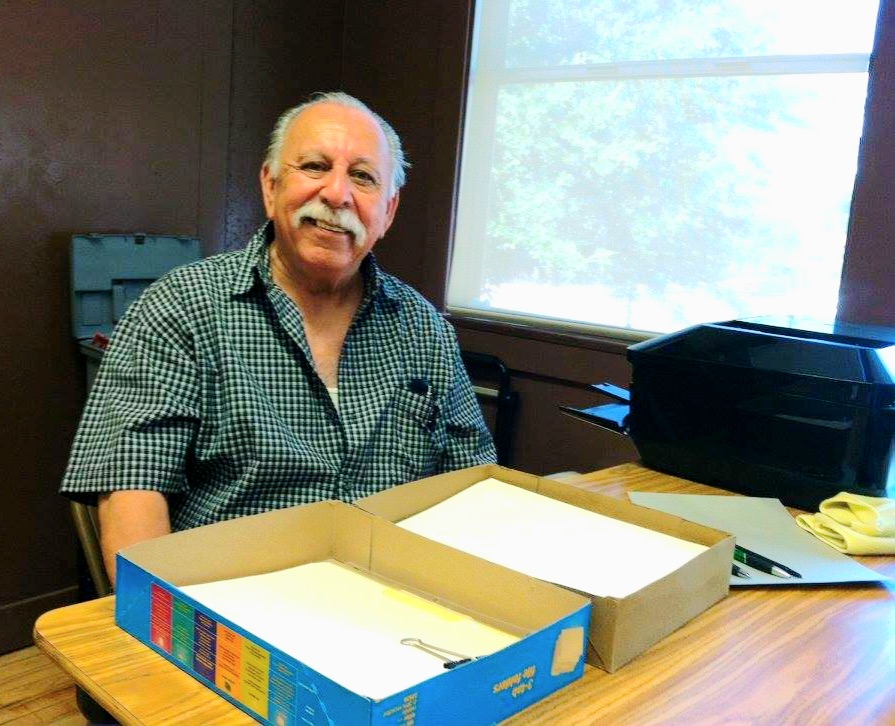Roberto “Tex” Murillo loved his barrio and the community loved him back. At the behest of the Casa Blanca Community Action Group, the Riverside Unified School District Board of Trustees voted in April 2025 to name the new Casa Blanca Elementary School Library after him. The beautiful STEM-based school opened Aug. 11 — the community is jubilant and grateful to once again have a neighborhood school close and walkable for the students. No more busing of Casa Blanca students to various schools throughout Riverside [busing began in September 1967 with the closure of the old Casa Blanca School against the community’s wishes] for the altruistic goal of integration.
Endowed with the spirit and resilience of Tarahumara ancestors, Roberto was a cultural warrior for social justice and equity. His motivation was visceral — driven by coraje — anger for the injustices and indignities wrongfully committed against Chicanos — by events perpetrated against him and others. He channeled that anger through activism, getting into good trouble, and in his writings.
In his youth, Roberto protested and marched during the movimiento of the ’60s and ’70s. As a Brown Beret, he helped organize a march to the state capital in Sacramento to voice grievances. He worked at the Casa Blanca Home of Neighborly Service and wrote for the “Qué Pasa?” Newsletter. He served on the Casa Blanca CAG and was a founding member of the Education Advisory Committee. He diligently addressed school board and City Council meetings to advocate for a school in Casa Blanca.
Roberto was a self-taught cultural historian of Casa Blanca, who documented the storied history of his beloved barrio and its residents. He devoted his golden years to reading and writing about social justice, Chicano/a history, and “Barrio de Casa Blanca.”

Most weekdays, he would be immersed in research at SSgt. Salvador J. Lara Casa Blanca Library, Chemawa Middle School Library, or the Riverside Main Library local history section. As years passed, librarians became esteemed contributors of salient information — Rocio Orozco at Casa Blanca, librarian at Chemawa, and Ruth McCormick at Downtown.
The trajectory of Roberto’s work changed when McCormick gave him a copy of a July 12, 1911, newspaper report on school board proceedings held the evening before when two unnamed women from Casa Blanca presented the Trustees with a petition requesting a school in their neighborhood. It became Roberto’s quest to identify the women activists — whose names were temporarily lost to history: piquing my interest and help pursue.
I worked with Roberto when he curated two exhibitions, “Tesoros de Casa Blanca” of his vintage photos and artifacts relating to the beloved Casa Blanca school: on Oct. 13, 2016, at the Ysmael Villegas Community Center; and on May 21-23, 2017, at the old Casa Blanca School.
The standing-room-only exhibitions proved pivotal in the long struggle to bring back a school in the community. Riverside Unified School District Trustee Angelo Farooq expressed his support and during his speech made a commitment to work on establishing a new neighborhood school in Casa Blanca. CAG President Anthony Rivera committed to making the school project a CAG priority. The exhibition led to the eventual identity of Ysabel Solorio Olvera, one of the women who presented the 1911 petition to the school board — whom Roberto called the true “Tesoros de Casa Blanca.” In this column on May 11, 2017, I named them “las Adelitas” for their courageous stance for education equity.
Roberto’s research inspired him to write, “Casa Blanca en Huelga” to encourage community unity and motivation. A true story of triumph and hope, he describes how voters got rid of an incompetent Riverside City Councilman in 1946. He wrote, “Fred Ross took interest in their concerns and went to Casa Blanca to meet with a group of community leaders … upset with Councilman Rathgeber and were anxious to dump him … of all the precincts, Casa Blanca’s Precinct 59 polled the heaviest, thus earning Casa Blanca the distinction of holding the balance of power in determining the election results.” “Huelga” reflects the essence of Roberto’s activist philosophy.
He participated in Tesoros de Cuentos, a writing workshop I developed and facilitated at the Casa Blanca library. “Huelga” was published in the 2018 Writings From Inlandia, and he subsequently self-published an enhanced version that included historic photos and illustrations. Roberto’s mantra: by working together in unity, the community can tip the balance of power.
The legacy of Roberto “Tex” Murillo is encrypted at the school library bearing his name, and eternally immortalizes an impactful man who devoted the best of his life for the betterment of the people — the community of Casa Blanca. This ancient Nahuatl poem resonates: “I coyote-hungry-for-wisdom I say / we are only a little while here / not forever on earth… / Who will know my name? / at least my songs? / at least my flowers?…” To be sure, current and future generations of Casa Blanca students will know Roberto’s name.
Frances J. Vasquez is Inlandia director emerita and serves on various committees, including Cultura Without Borders. She is an aficionada of arts and culture, and local history.



